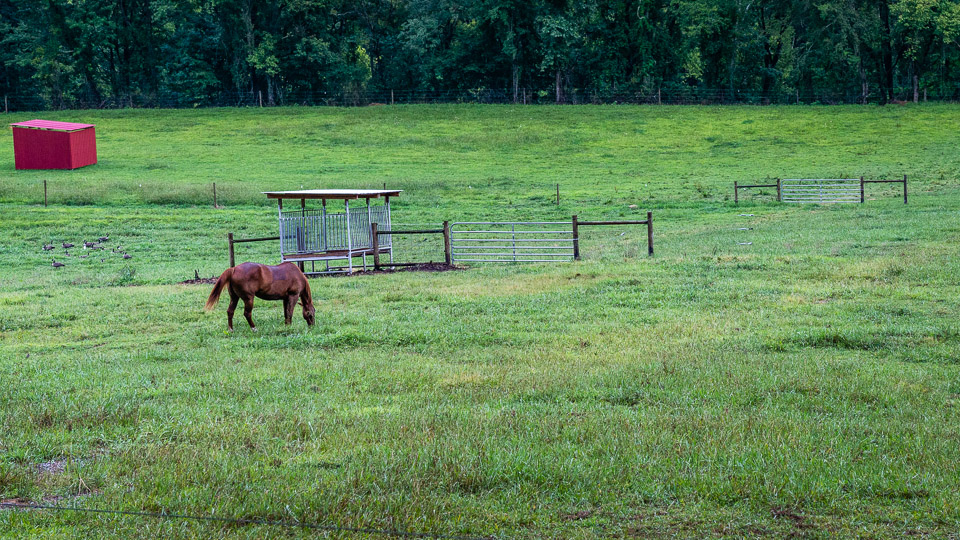
Constantly At War
Are We Really Constantly At War? Is there a never ending battle between us and them where if we win, we live and if we don’t, we die? Is this going on right now in the guts of our horses?
This has been a tough week with the insane shootings in Las Vegas. Today I passed a large sign spanning the Georgia interstate announcing that 1150 people had died in traffic accidents in this state this year. We have all faced loss of some sort and for us, it was our cat this week. As a veterinarian I have faced death so many times I have come to accept it as a fact of life. What I have had a hard time understanding is why humans and domestic animals sometimes have a protracted loss of health first.
I have looked constantly for the squirrel nursing home, the bird rehab center and the fish in wheelchairs at the nursing home. Yet for you and me and the horses, dogs, cats and other pets it seems that so many have ill health first. Often it is debilitating and miserable long before death comes. Physicians and veterinarians have so many ways to diagnose diseases now and medicines to treat them too but few have the answers explaining the cause or the prevention of them.
In fact, spending 1 hour watching television will find about 20 minutes of advertisements and almost all of them are medicines to treat all of our “problems.” Pain, obesity, constipation, cigarette addiction and more each with severe warnings that this medication may have side effects including suicide, death, and other problems worse than what is being treated. When we return to the programming, the show may have a story involving doctors in a hospital treating the ill or a crime show where people face life and death situations.
I Want To Die YOUNG At A Very OLD AGE
I am not sure about you but I just don’t accept it. I heard an expression recently that suggests that I want to die YOUNG at a very OLD AGE. So my simple mind decided to investigate why we become ill and then die, just like my cat and the dogs and horses and parents that have gone before me. Hence the reason behind some of these blogs from your “equine dentist.” I want you all to realize that I am a horseman first, a veterinarian second and finally your equine dentist.
But I also realize that this is very new and very different from what you all have heard and experienced as horse owners. Many of you will never remove grain from your horse’s diet or believe that the diet has anything to do with the ill health of your horse. There are others that look for various foods that I have never heard of insisting that they are natural, whole or organic and therefore good for the horse. Arsenic is natural and can be grown organically, but it will kill you and your horse.
A Review
I want to take a moment to review the information I have presented in past blogs. If you haven’t read them yet, just click the links. It is also OK to re-read them. I also want to emphasize that these are hypotheses based on human research. I am only writing about them in hope that a researcher may take interest and substantiate them.
- The gastrointestinal track (GIT) is a tube running through all horses starting at the mouth. What is inside this tube is outside the body and only molecules are allowed to pass across the solid tube wall. (Doughnut Hole)
- The bacteria inside this tube remain inside the tube and lives a life that is in balance with the horse. (Symbiosis and the horse’s gut)
- The bacteria within the GIT are fed with the food we eat. They turn this food into molecules that can be absorbed into the body to give nourishment to the horse.
- The food that enters the GIT has been eaten for tens of thousands of years and has been recognized as good. In other words these foods know they will be eaten and die inside the horse and this causes no harm to the horse.
- When new foods are introduced, the bacteria in the GIT often are killed much like an invasion of a bigger, stronger or smarter army. This food tries to protect itself from being eaten by producing proteins called lectins that weaken or kill the animal eating them. (Lectins)
- From the war in the gut between the bacteria and the new food’s lectins, the gut wall becomes damaged causing leaking that allows these invading lectins into the body. Within the body they mask essential cell ports, mimic important proteins, and can even turn the body against itself (autoimmune disease).
- The result of this constant war in the GIT is illness and eventual demise of the horse from this illness.
It’s overwhelming to many of you but hang in there and just look at the big picture. Lectin filled grain is “new” to horses and is not found in the natural diet of horses. Next week I will discuss the diseases in humans that have resolved in the past 12 years when lectins have been removed from the diet by one medical researcher. I will postulate some of the diseases in horses that may also be a result of ingesting lectins.


So can we go “cold turkey” in eliminating grains? And – I’m guessing I should just feed alfalfa hay and not the pellets since they contain additives – right?
This question is often asked. YES you can go “cold-turkey” which means you can immediately stop feeding grain. Think of it this way. If you were eating something that was making you sick (inflaming the bowel), how long would it take you to stop eating it?
Here are two things that happen when grain is removed. 1) For about 3 days the horse(s) may complain of the disrupted feeding schedule. They will get over it but you can, if you want, feed a few cubes of hay or a handful of hay pellets. 2) Most fat horses will rapidly lose the fat along the top line. This is an indication that the gut inflammation is subsiding but unfortunately your eye may think that the horse is going downhill. The truth, however, is that with the fat gone, the lack of muscle is now evident. The solution is to add protein and trust the process.
There are a lot of hay pellets without additives. look at Standlee for the hay (at Tractor Supply). If you do feed alfalfa, just a flake a day should suffice for a horse. The rest can be grass hay.
Hmmm, I don’t suppose that medical researcher is Dr Adamo and the “Eat Right for your Blood Type”? This is his exact premise.
Dr Steven Gundry who wrote “The Plant Paradox.” Eating for the right blood type has been around for a while while the discovery of how lectins affect the immune system is relatively recent. I am trying to hypothesize that it is the lectins in grain that is affecting our horses causing obesity, hard keepers, insulin resistance, muscle wasting, arthritis and more. Dr Gundry and I have a similar view – WHY are all these diseases happening now in a greater frequency than before? Stay tunes as I try to explain more on this.
PS I hope last weekend’s hurricane did not leave you in knee high water. Melissa, Kathy and I sent our best thoughts and prayers to you and your neighbors in LA.
I do a lot of rescue work so I see first hand the changes in horses when grain is not part of their diet, even when I have an extremely emancipated horse we don’t resort to grains to bring them back to their full weight and temperaments. Thanks for getting the information out so people can be better educated!
I also have 26 horses, lol including 2 donkeys so it’s not like I base my findings on a single experience 🙂
Thank you for reading this and commenting. I appreciate you addition because hearing from real experiences helps to make the points. Stay tuned as I try to bridge the gap between human research and horses to help understand the why behind it.
Doc T, thanks for your insights. I was looking at one of my horses today and was amazed at how great she looks. I started her on Pro Add Ultimate back in the spring. Her coat is sleek and shiny and her she’s finally growing decent hoof, where before she’s always had multiple surface cracks. I also noticed that the rough, flaky areas on the front of her cannon bones behind is completely gone. I’ve tried numerous shampoos and topical ointments over the years, but nothing every cleared it up. We look forward to seeing you back in Virginia next spring!
Thanks Harriet – this is a comment that helps others a lot. Would you be able to add whether you also removed grain from the diet? My discussion of how lectins work in binding and blocking glucose uptake also includes the prevention of protein absorption leading to chronic protein deficiency. Thanks
I haven’t fed grains to my horses or cattle for over 20 years. My animals live long lives, we don’t have colic, founder, ulcers or any of the other issues I read about from other owners. We also don’t see declining health issues before they pass on. Hay, hay, hay 24/7 and our horses love us just the same 🙂 Keep preaching it if one horse is given the chance to live a healthier life it’s all worth it!
Thanks Patty. My blogs simply say to stop feeding grain, but they also offer a possibility as to why it is affecting out horses in such a bad way. My perspective of 44 years with them is driving it, but comments like yours are needed to show others that there is merit in eliminating grain from the diet of the horse. More on this coming over the next few weeks. Thanks!
Thanks for continuing to repeat the details, Doc T. I am moving patiently forward on our new “no grain” program and beginning to notice the subtle changes in my horses. Most importantly, I no longer have the nagging worry about the undefined ingredients in what I’m feeding. Keeping a journal line you suggested! See you after the first of the year to catch up at “teeth time”
Thanks Sandra – I am really looking forward to our visit. In the meantime I will continue to offer these new ideas and hope that owners like you are willing to try it and report back so we all learn together. Thank YOU!